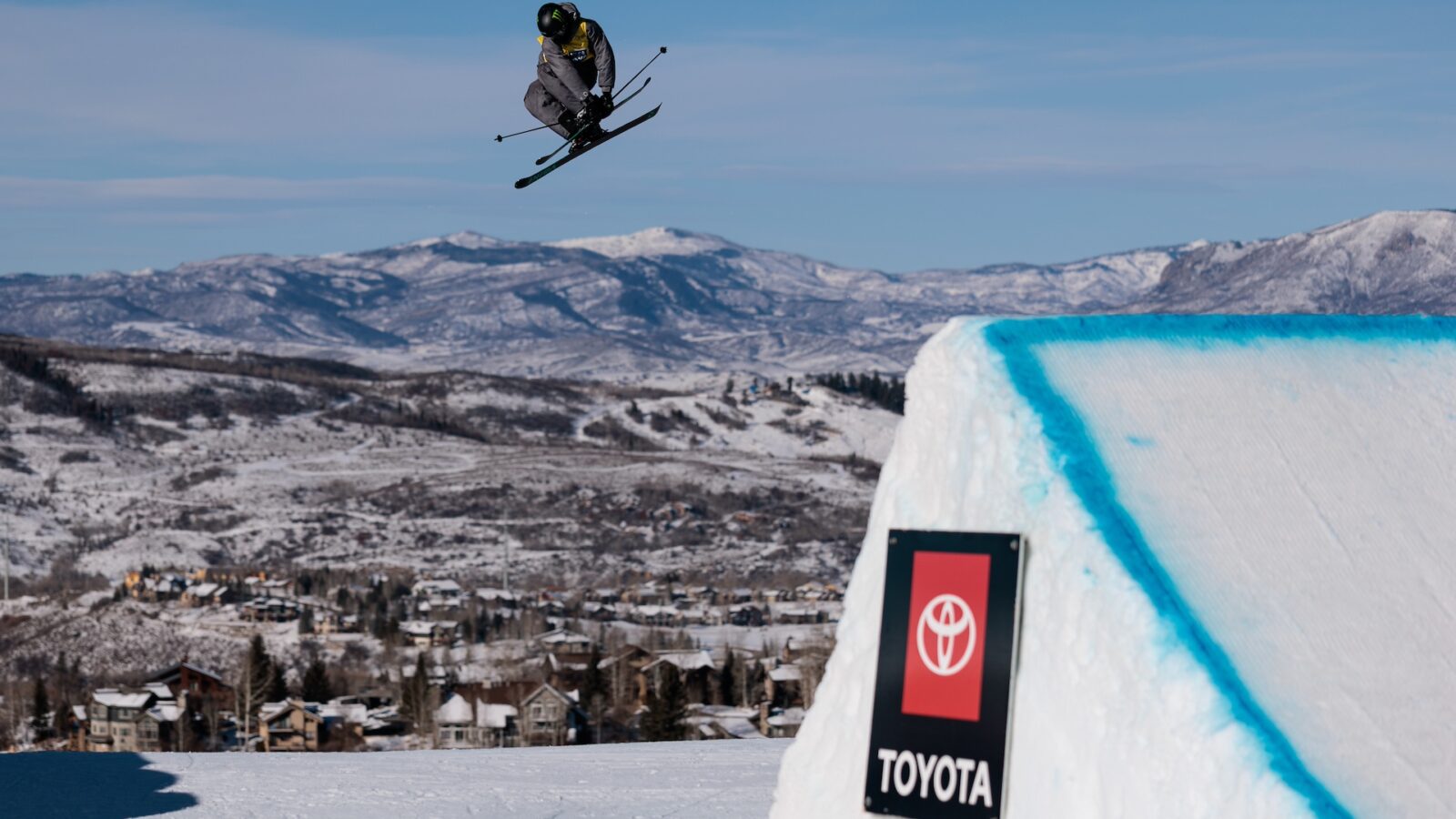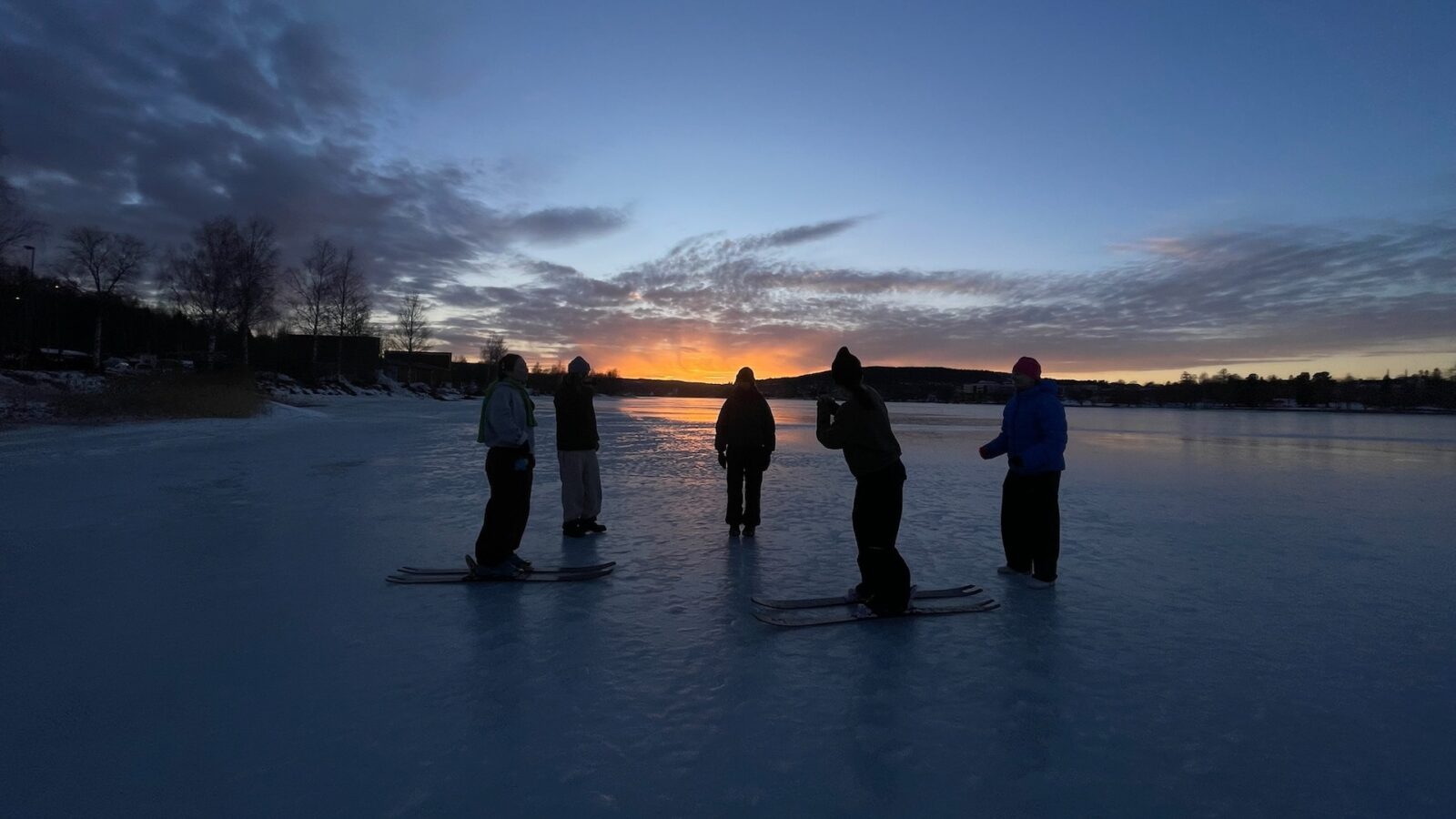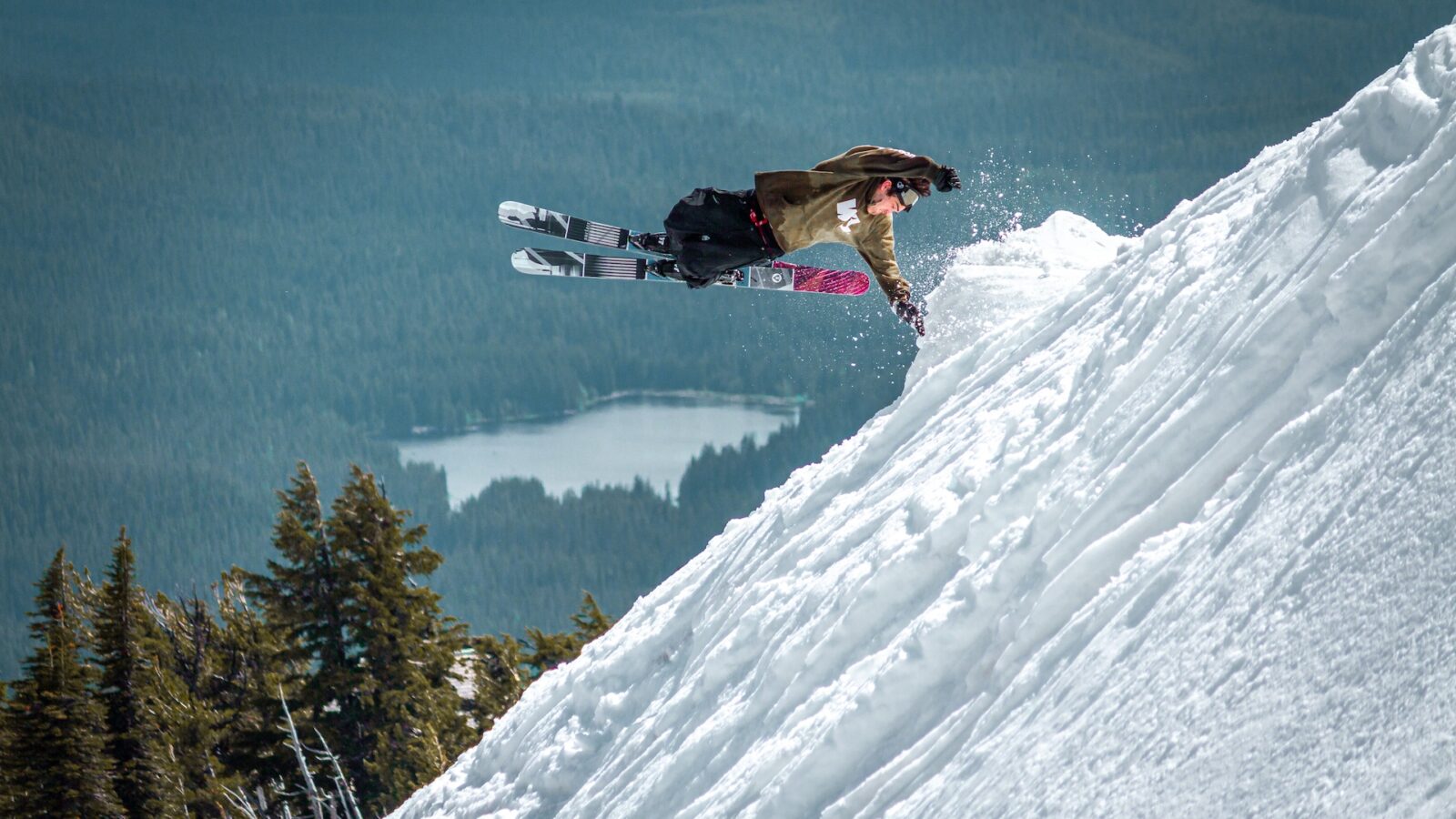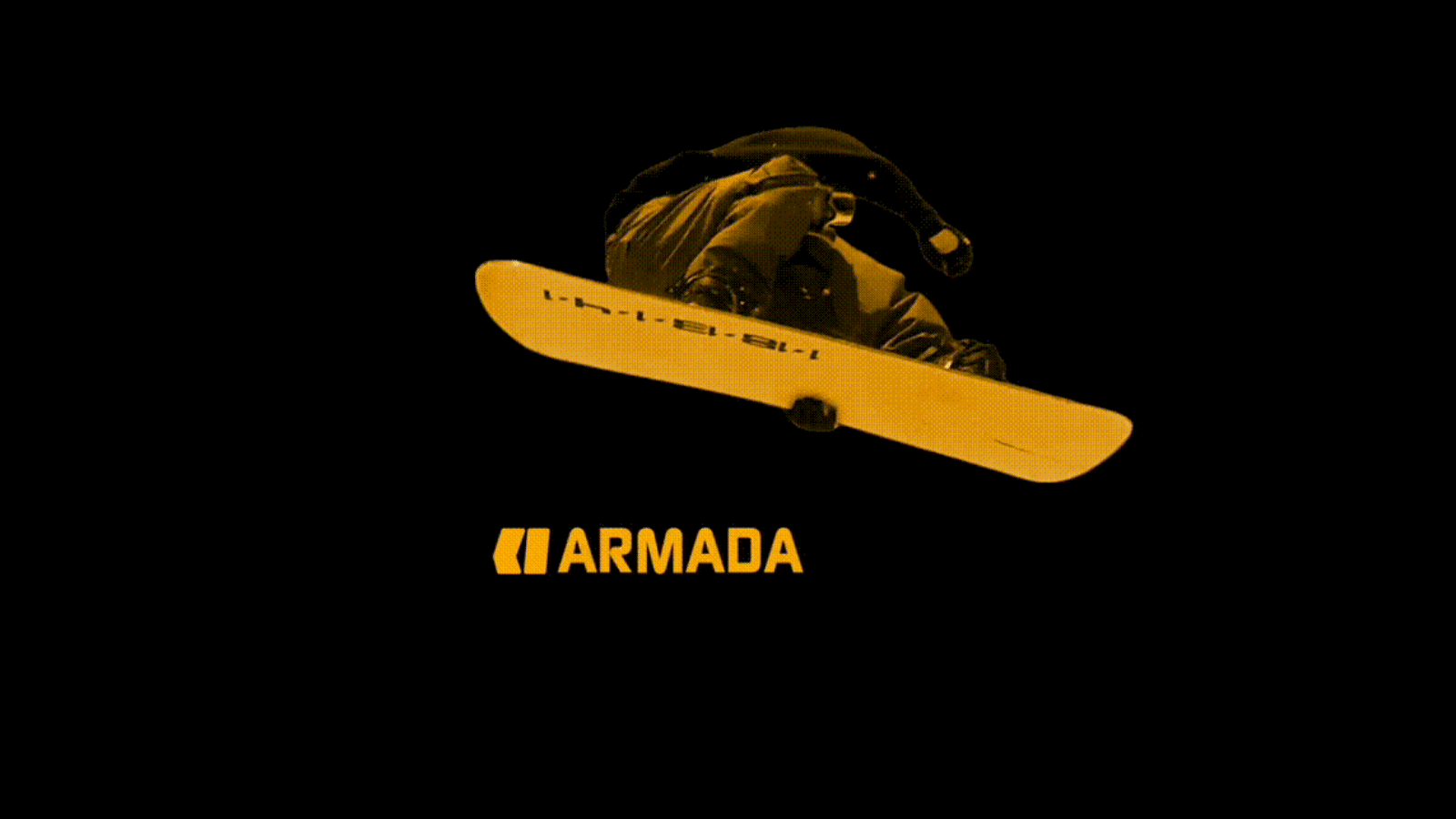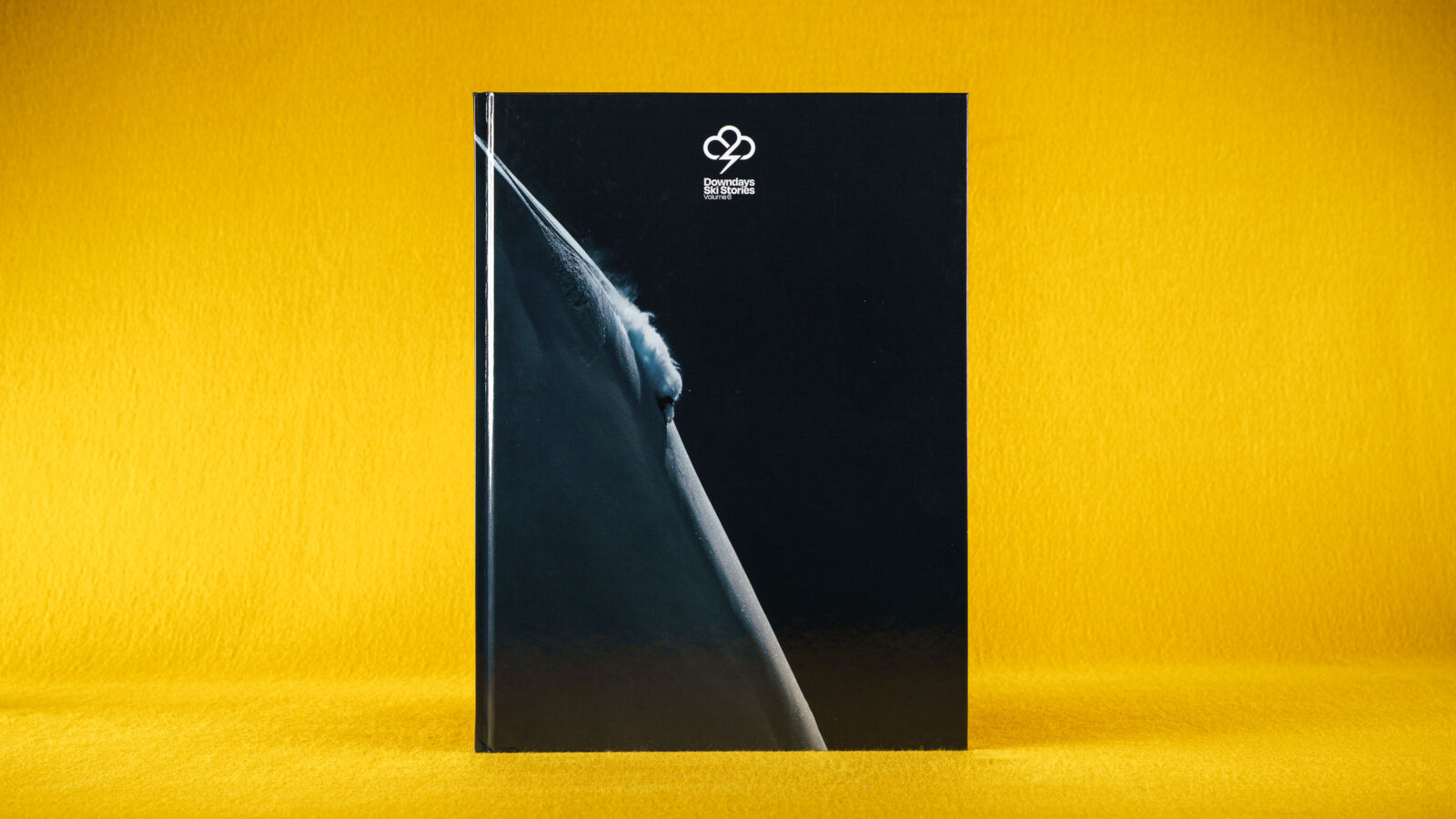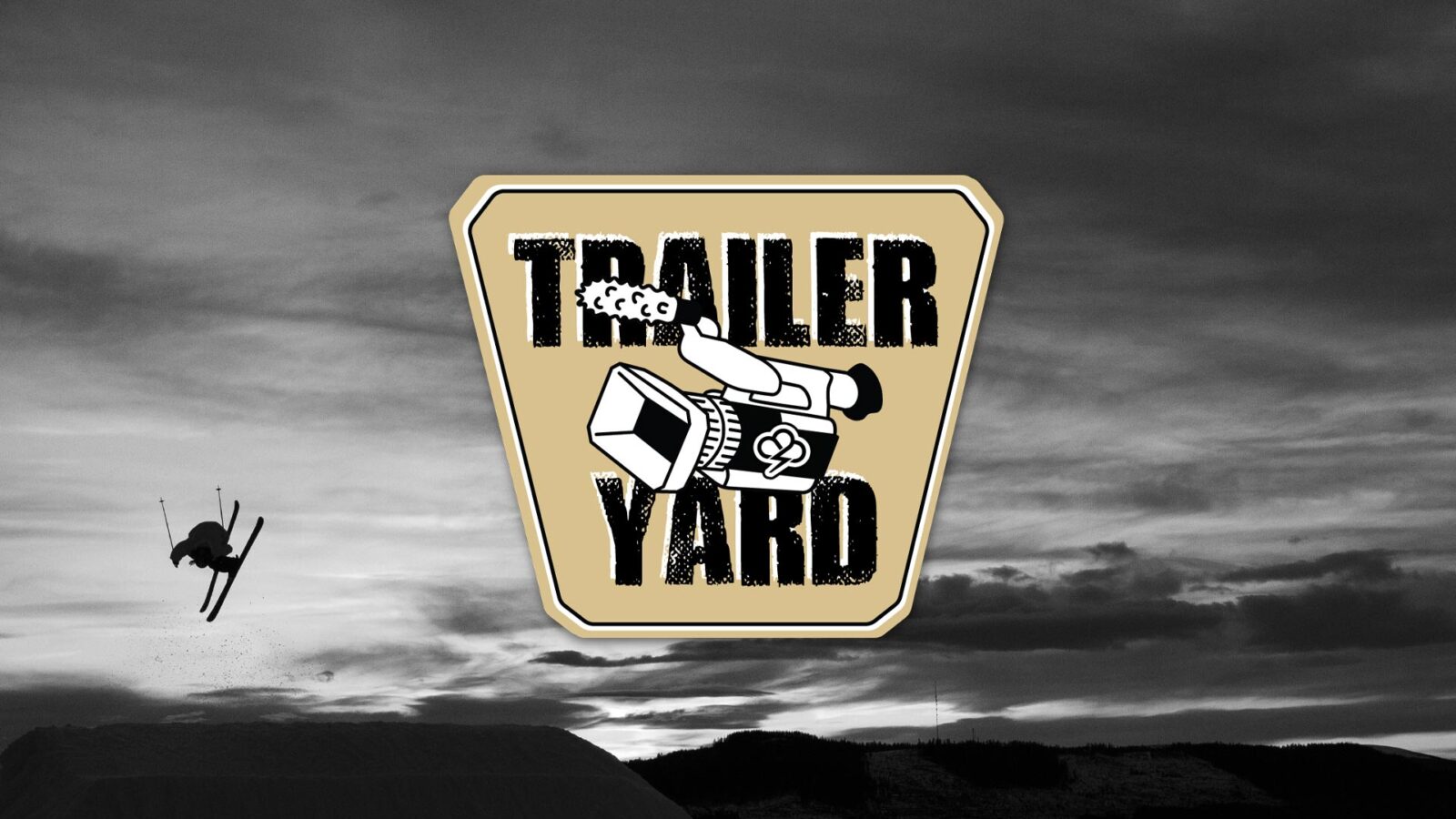Coline Ballet-Baz’s new film project tackles a rarely addressed topic: the dangers facing migrants on Alpine border crossings and the efforts to help them.
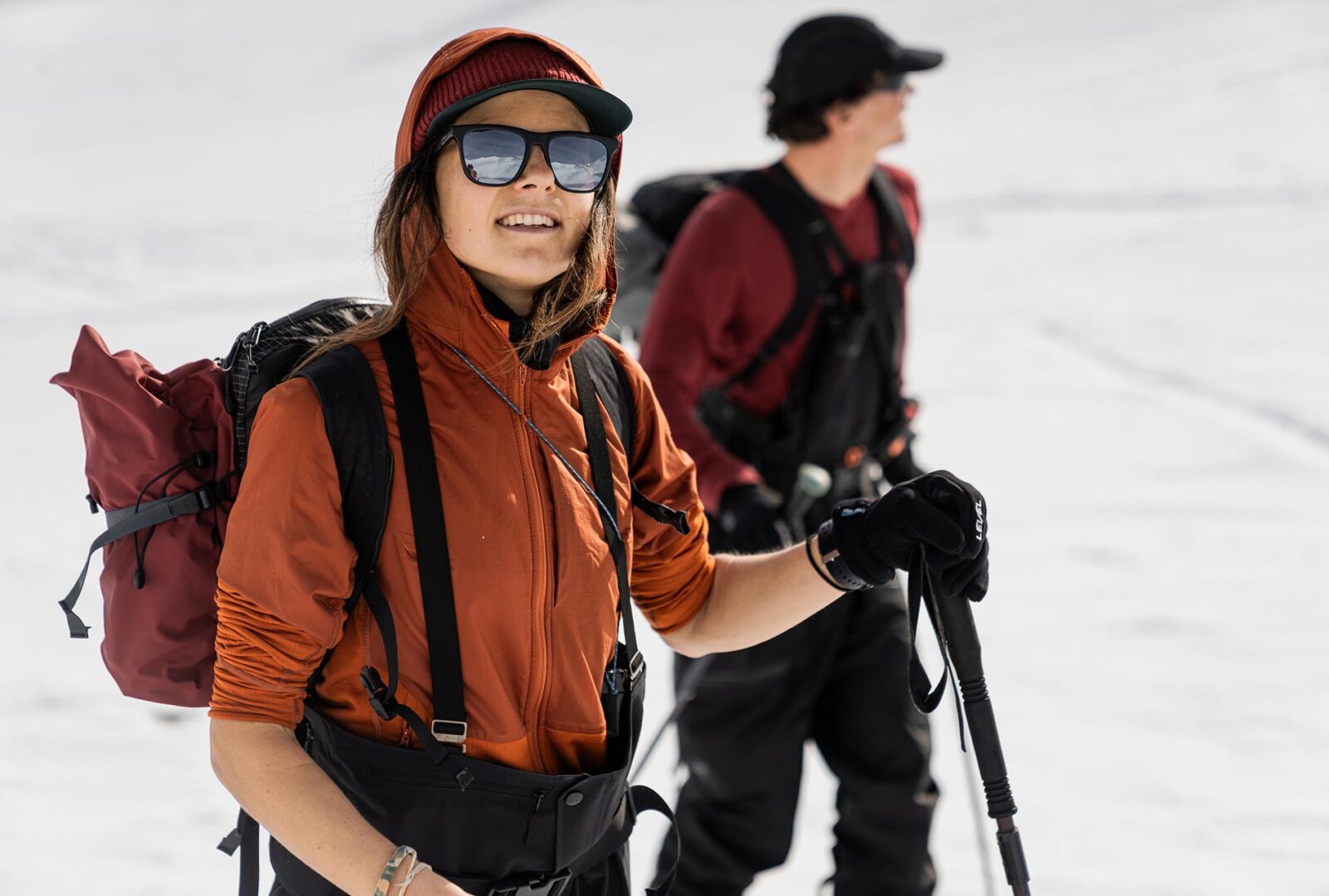
Stories
HighlightDangerous crossings
“No one should be left in danger in the mountains without trying to rescue them”
It’s a bold new turn for the French skier, who after a long career on the freestyle circuit, turned her attention to filmmaking with memorable projects like 2019’s all-female freeski flick Recipe before making the switch to freeride.
There’s a lot to unpack in her new short, “Passages – Introduction,” which is essentially an extended teaser for a movie that’s planned for release next fall. So we asked Coline a few questions to learn more about the solidarity movement in Briançon, and how she got involved.
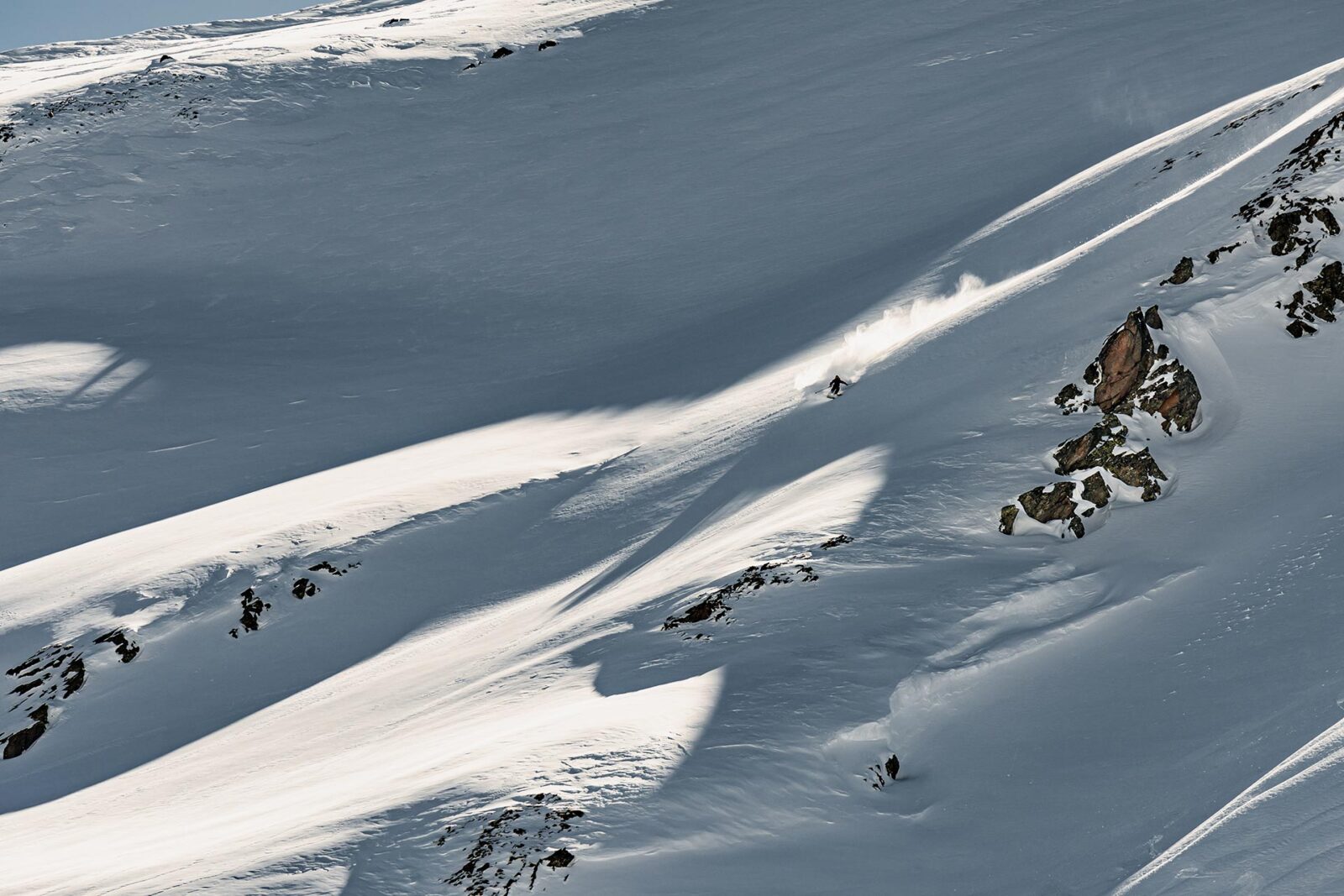
Ethan Stone: Hi Coline! Can you give us some background to the situation around Briançon? What exactly is happening on the border there?
Coline Ballet-Baz: The area around Briançon has been a territory marked with migrations for decades, since it’s at the border between Italy and France. In the ‘50s it was Italian workers coming to France looking for some work, nowadays it’s exiled people from all over the world escaping war, poverty or political repression. The thing that has changed since around 2015 is the fact that the police at the border have been getting more and more repressive, forcing migrants to take increasingly difficult paths in the mountains to have a chance to make it to France with no appropriate winter equipment, resulting in severe accidents and a few deaths. (The Montgenèvre pass where most of the passages happen is at 1800m altitude.)
What is the solidarity movement in Briançon? How are people trying to help?
Following these accidents, a lot of inhabitants from the valleys around Briançon were in shock and decided to act, because they didn’t want their mountains to become cemeteries. The first motivations of people coming to help were based on this simple reality that everyone experiences while practicing mountains sports: No one should be left in danger in the mountains without trying to rescue them. Two main associations were therefore created: Refuges Solidaires, a place in Briançon were exiles can spend a few days resting after their traverse, get some sleep, food, and some advice on the administrative steps needed to complete their asylum request, the next fight they will have to pursue. Another one was created with the purpose of providing direct assistance in the mountains: Tous Migrants. The goal here is to organize volunteer patrols, in which volunteers go in the mountains every night with some warm tea, extra gloves etc. and try to meet exiles to offer them some assistance, to try to avoid further accidents.
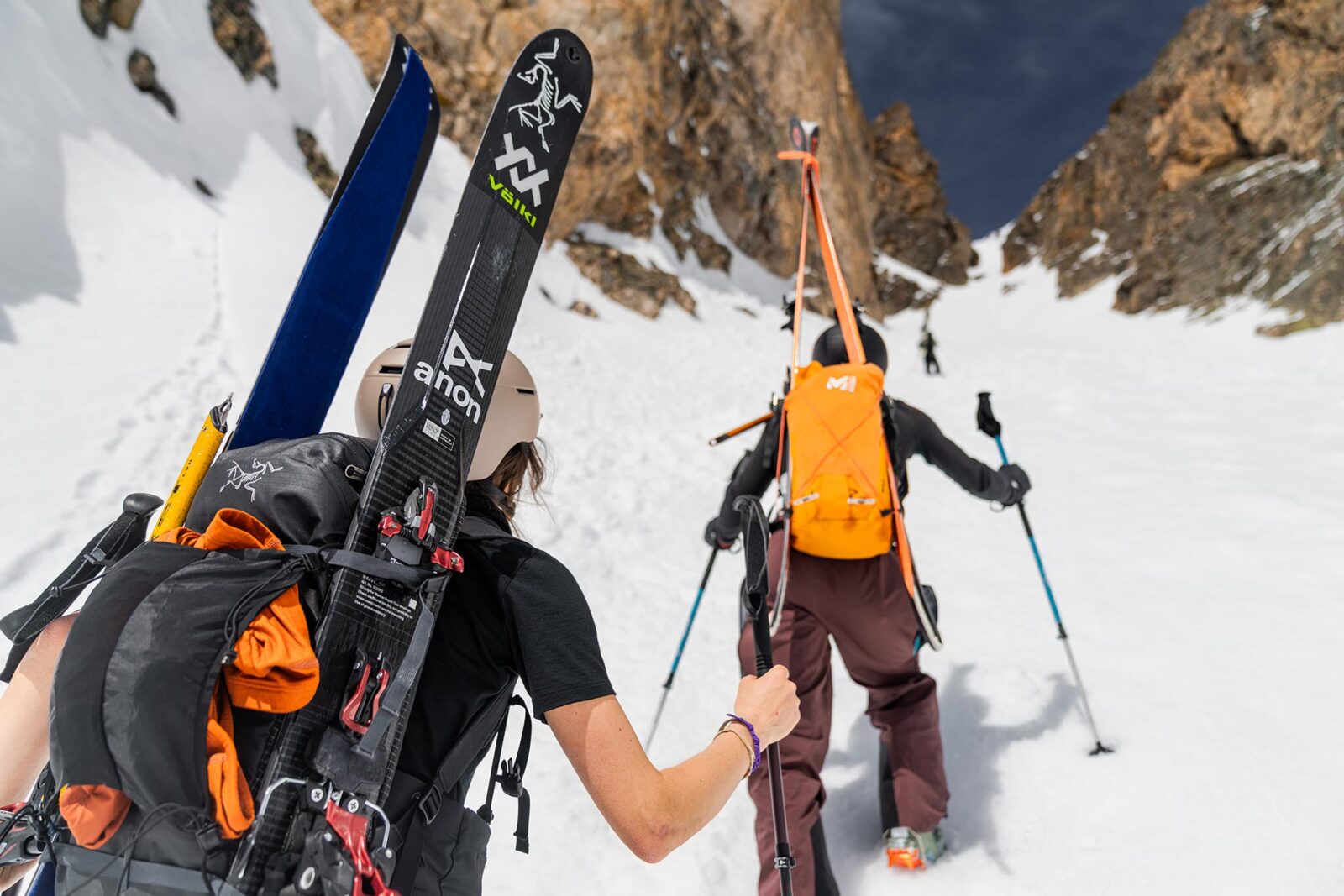
How did you get involved with Tous Migrants?
I got to know what was happening in Briançon after we distributed warm clothes to the Refuges Solidaires in 2019 with Riders for Refugees, whose purpose is to collect warm clothes from the ski & snowboard industry and distribute them to those in need. While I was there, some volunteers from the Refuges Solidaire told me that they always need extra volunteers, even for a few days, since there are some migrants arriving every night. There is no break in demand, and it’s easy for the local volunteers to experience activism burnout. I went back there for one week with a friend during spring 2020, and after a few days helping in the Refuge, we also learned that they were looking for volunteers for the night patrols as well. So we did our first nights in the mountains with Tous Migrants. After this experience, quite shocked by the whole situation and the lack of respect for human rights at the border, I decided I would try to go back there as much as I could to support this solidarity movement.
What happens on a volunteer patrol?
During a volunteer patrol, you basically drive to Montgenèvre from Briançon (around 15 km), and then leave the cars in the village, go walk in the mountains and offer assistance if you cross the path of some exiles. Some prefer continuing alone, since it’s hard to trust someone they just met in the night in the mountains, while others are very keen to follow us, especially the most vulnerable ones: families, pregnant women, kids, injured persons and so on. There are sometimes interactions with the police; sometimes quite “positive” with some discussions, and we give them flyers with some reminders of the law, while some others are more “aggressive,” and it’s not rare that volunteers have their papers controlled or experience intimidation. Besides this basic help, the other goal with these patrols is quite political: maintaining a presence in the mountains to spread a welcoming message to migrants, and fight to maintain solidarity and equality as core values of these mountain territories.
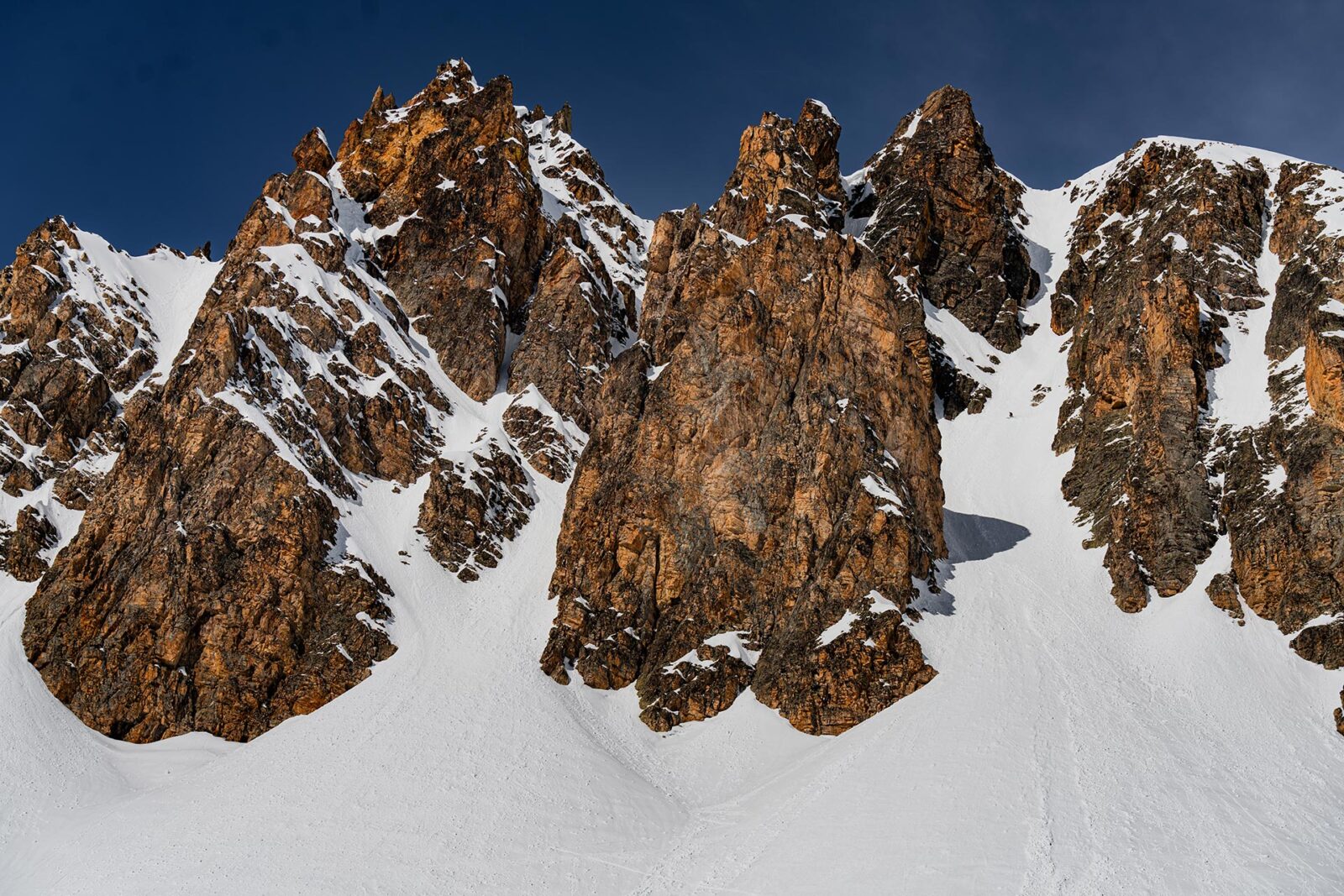
It’s rare that a ski video addresses challenging social issues. Why did you want to address this topic in a ski movie?
I think that everyone who makes movies wants them to represent a part of what they are currently living, whether it’s focused on performance, remote and adventurous expeditions, or a topic that takes place in their mind or life. That’s what happened here with me: these volunteering sessions were occupying a lot of my time and head space during the summer after the ski season, and it happens that they take place on the same territory where mythical skiing parts have been filmed (for example, Candide Thovex has been filming a lot in Montgenèvre). I wanted to make this other reality of these mountains visible, and work on a documentary in which these two worlds could be reunited under this common ground of solidarity.
It sounds like “Passages: Introduction” is basically a teaser for this project. What do you have planned in the next year?
Yes, this short 8-minute release is a teaser for a longer film that will be released next year. It’s a way to introduce this topic to the skiing and snowboarding world. For next year’s movie, we will dig deeper into the solidarity movement around Briançon, with interviews of local volunteers and migrants, talking about their experiences but also their link to the mountains: how this environment has shaped their will to help at the border, or how they look at the mountains now after the stress faced during their traverse. To bring these two worlds together we will do a ski traverse with them: a few days in these mountains crossing the border and the symbolic migration places like Col de l’Echelle. This traverse will be our starting point and our red line throughout the movie to tackle this sensitive subject while linking it to our passion and what brought me there originally: skiing.
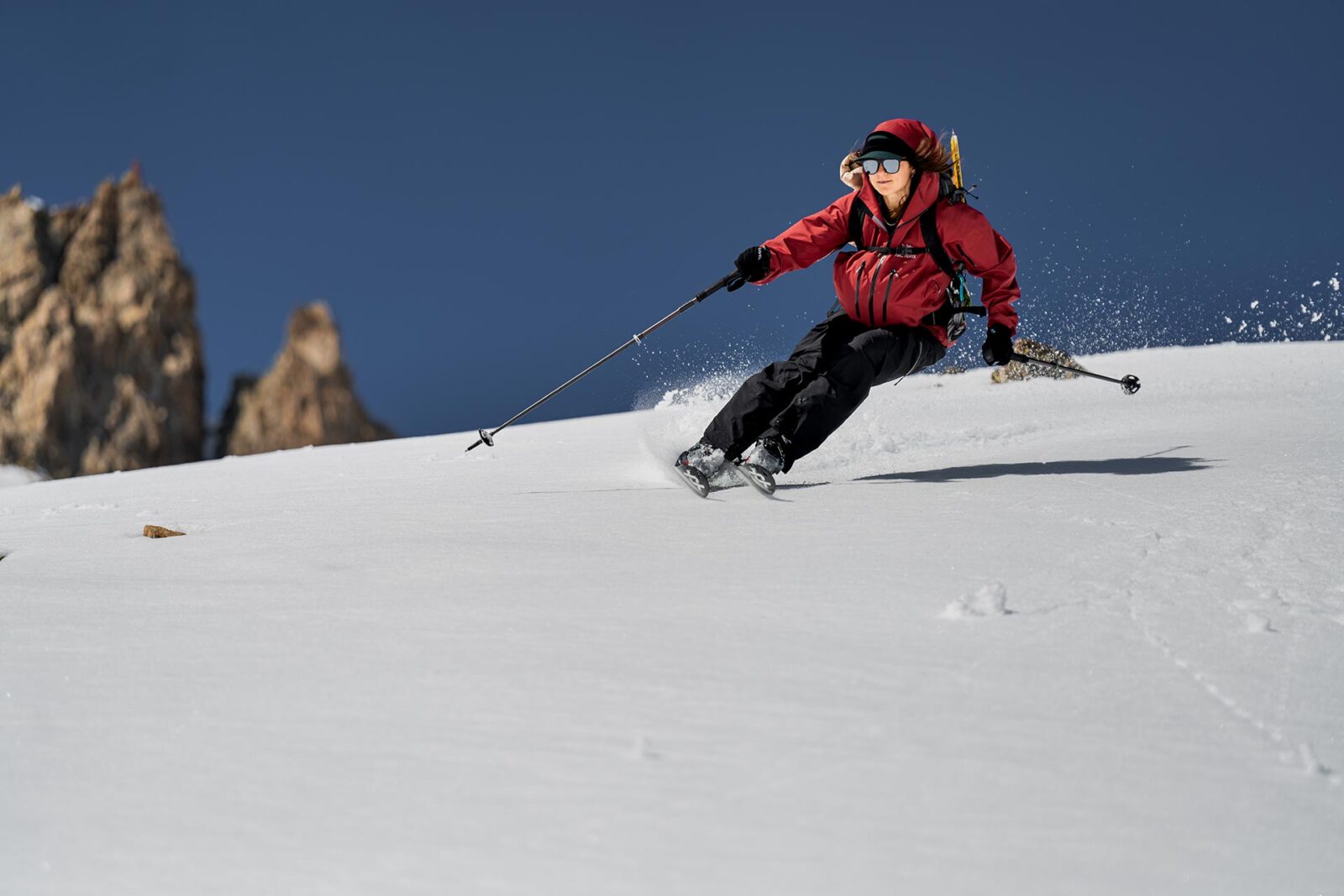
You made a name for yourself in slopestyle and big air before you started making movies in the streets and BC. Do you still get out in the park and the street, or is your metamorphosis to freeriding complete?
Haha, I can say the metamorphosis is quite complete! I get so much pleasure from learning about the mountains and evolving in this new environment. I love every aspect of it, and freeride skiing requires so much knowledge that I felt I needed to dedicate more and more time in order to practice it in a safe way. But I also still LOVE a good park or BC session from time to time, this feeling of being in the air is my first passion and I think it will never fade. Street skiing though… maybe the body is getting too old for this. It’s hard to perform in the streets without proper park and rail training, but with a bunch of good friends asking me, you never know!

